Comic-Con@Home 2021! Saturday
July 25, 2021
Saturday at Comic-Con@Home for Saturday consists of panels, panels, and more panels! Like I have mentioned before, the panels this year are all youtube presentations, and all of them can be watched after the fact, at your convenience.
This is a great way to share panels and make this widely available (Hint, hint, Comic-Con International).
Truth, Justice, and A Better DC Universe: A New Future for The Man of Steel
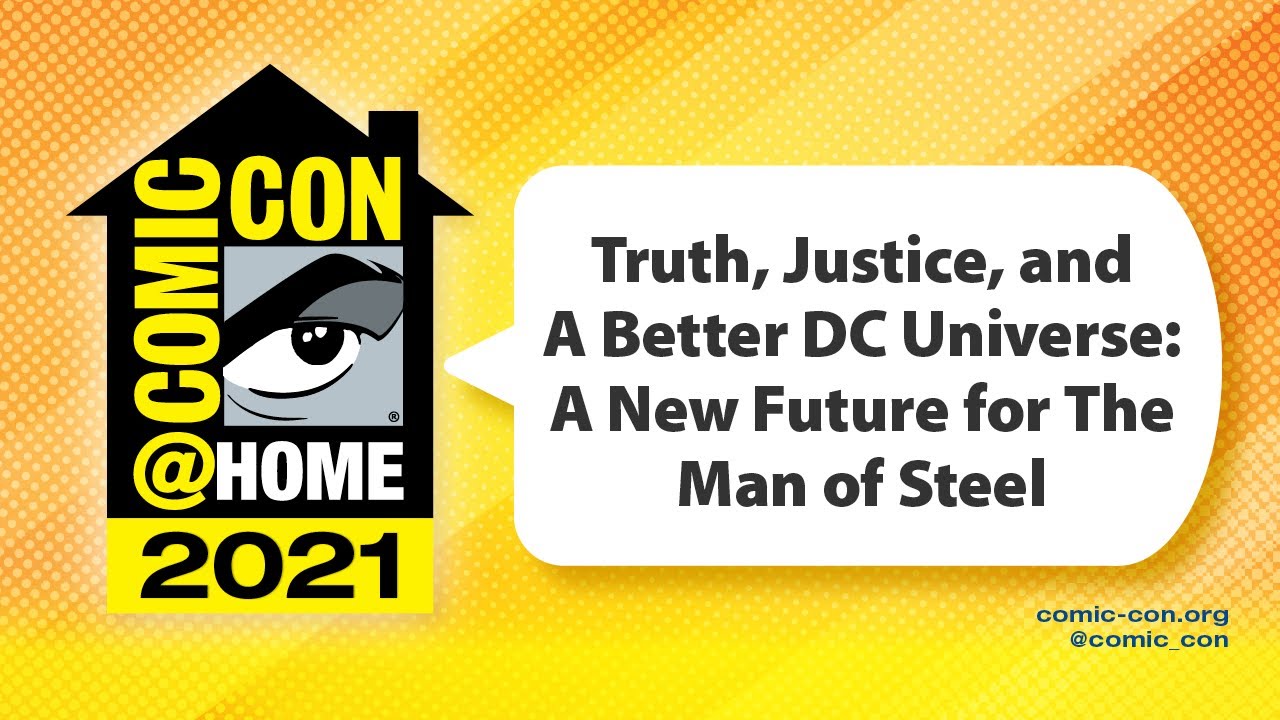 Phillip Kennedy Johnson, writer on Action Comics, talked about wanting to put Superman on a more global stage. He also mentioned a couple elements from Bendis’s run that he latched on to, and wants to incorporate into his stories. An interesting question: why would Clark walk away from the Justice League?
Phillip Kennedy Johnson, writer on Action Comics, talked about wanting to put Superman on a more global stage. He also mentioned a couple elements from Bendis’s run that he latched on to, and wants to incorporate into his stories. An interesting question: why would Clark walk away from the Justice League?
Tom Taylor, writer of Superman: Son of Kal-El talks about Jon Kent, and some of the challenges that he will face in this series. He mentioned the differences between Clark and Jon, and how Jon’s upbringing was different from Clark’s and how that influences him.
The Authority is coming back into Action Comics, and the current Warworld Rising will lead to big events that will bring the Authority into the story.
Grant Morrison talks about what Superman and The Authority have to do with each other. With the a more middle-aged Superman that doesn’t have to carry the weight of being Superman, and decides to try to make changes in ways that he hasn’t been able to before. Some members of the Authority will be the same as previous Authority teams, but several members will be other analogs of these characters from other parts of the DC Universe.
Mikel Janin, the penciller for Superman and the Authority talks about the character designs of the characters, and how he tries to make them look good on their own, and also as a group. He also was able to design a new Superman costume, and he discussed all of the influences that went into his costume decisions.
If you are interested in the current slate of Superman books, the three writers discuss how their titles are planned to work together.
Mikel mentions that Superman is a harder character to draw than Batman, a character that he previously drew. This leads to a question to the writers about if Superman is a hard character to write. This leads to a great conversation among the writers about what they like about writing Superman, and what the challenges are. This part is worth the price of admission, because they writers get to the heart of what Superman is all about, and what makes him such a great character and hero.
Filtering, The Invisible Rot Inside Your Story
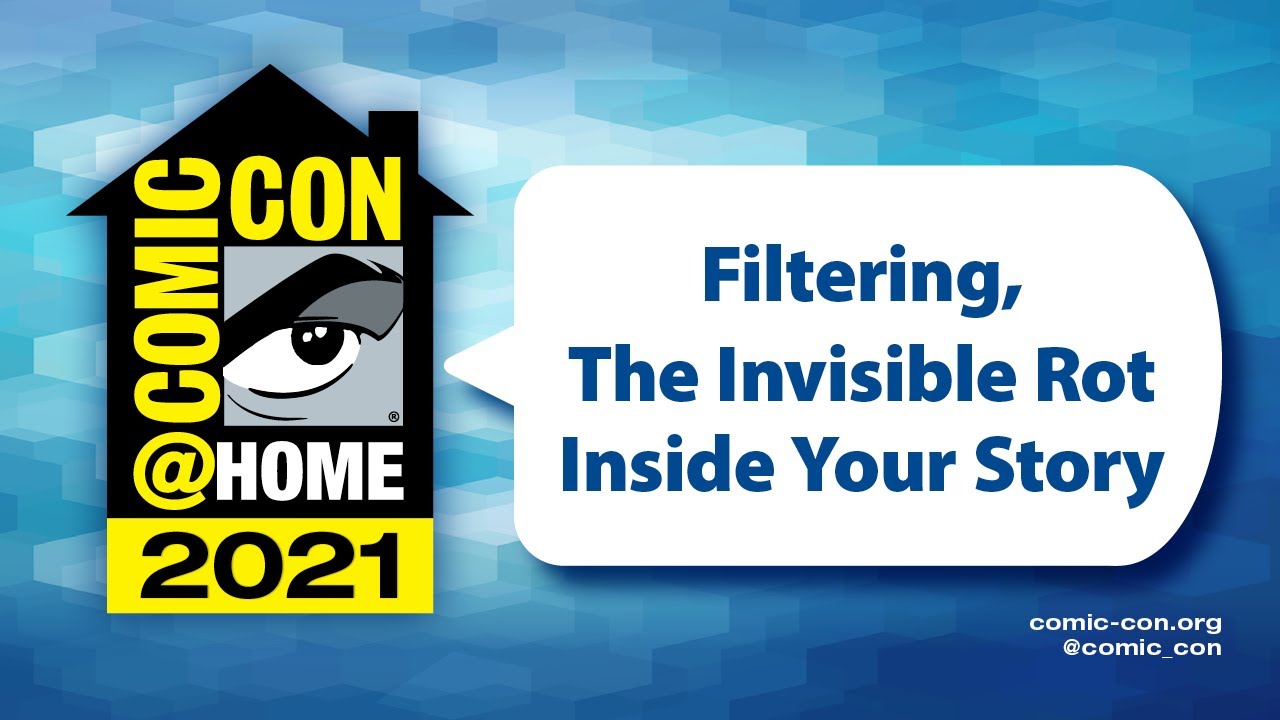 Maxwell Alexander Drake is a novelist and lead writer for EverQuest. This whole presentation is about Filtering, what it is, and how to prevent it.
Maxwell Alexander Drake is a novelist and lead writer for EverQuest. This whole presentation is about Filtering, what it is, and how to prevent it.
I am always a fan of these panels that dig into the craft of storytelling, and this one digs in. It starts with grammar, and a recap of the active voice vs the passive voice. He dislikes the passive voice a lot, and only uses it in very specific applications.
Filtering has to do with perspective, and what we draw attention to in our writing. Filtering is the act of writing something in such a way that we “filter” the actions of the story through the main character. This continually brings the attention back to the main character, rather than the events they are experiencing. When the action and experience are not filtered, it makes the story more impactful.
This is a terrible recap of what this is all about. This 30 minute video explains it a lot better. If you are interested in the craft of writing, this may be worth your time.
Diversity and Comics: Why Inclusion and Visibility Matter
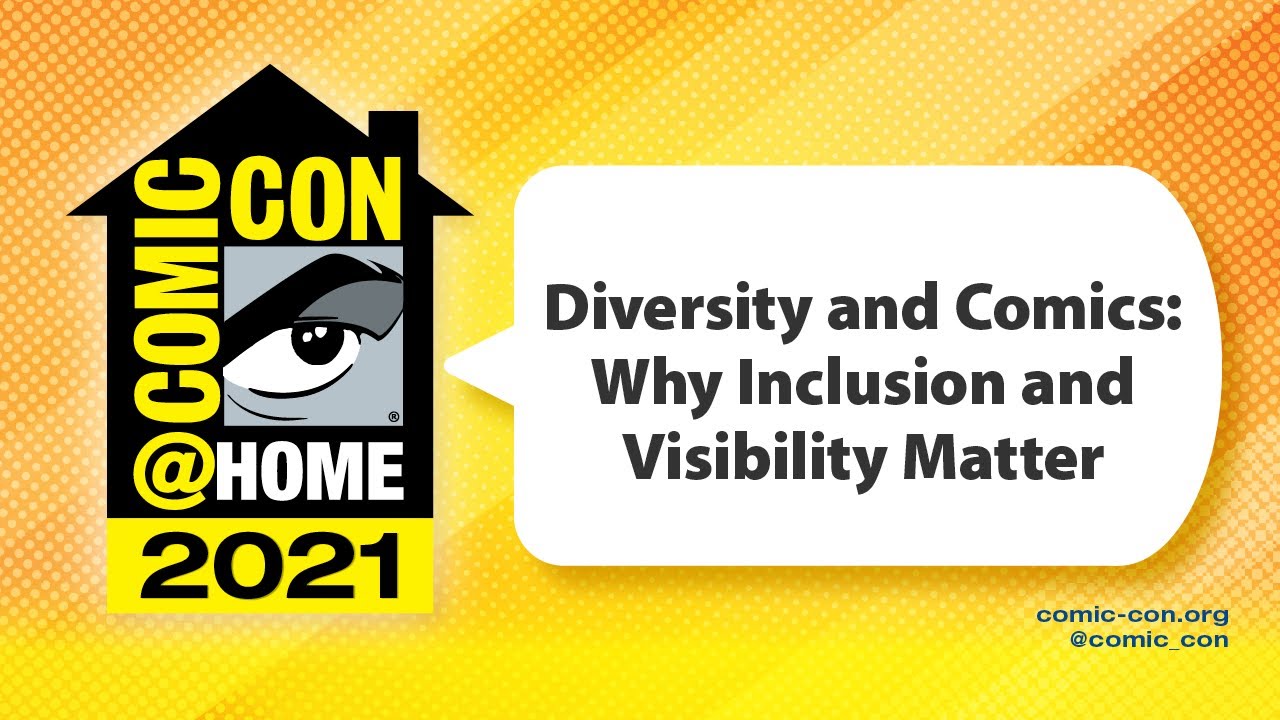 A diverse and accomplished cast of panelists discuss diversity in comics. This panel features Frederick Luis Aldama (Latinx Pop Lab founder and Eisner award winner), David F. Walker (Eisner award winner), Nicky Rodriguez (comic artist), Deborah Whaley (University of Iowa administrative fellow), and Erika Hardison (Fabulize Magazine). The panel is moderated by Stanford Carpenter (Chair, Black and Brown Comix Arts Festival)
A diverse and accomplished cast of panelists discuss diversity in comics. This panel features Frederick Luis Aldama (Latinx Pop Lab founder and Eisner award winner), David F. Walker (Eisner award winner), Nicky Rodriguez (comic artist), Deborah Whaley (University of Iowa administrative fellow), and Erika Hardison (Fabulize Magazine). The panel is moderated by Stanford Carpenter (Chair, Black and Brown Comix Arts Festival)
If you are like me, you haven’t experienced a need for increased representation. I am white, middle class, straight, male — pretty much the stereotypical white American. I have always seen myself represented in comics. Superman. Batman. Spider-Man. Captain America. Even my personal favorites: Dark Hawk. Many of the X-Men. Most Valiant Comics characters. They have always represented me, and I have been represented in comics, without even realizing that I was being represented.
That is why I think it is important to watch this sort of panel. There are many experiences that I have not had when it comes to representation. The way I can start to rectify that blind spot is by listening to others.
The conversation starts with some discussion of the pandemic and how it has effected them personally, and also how it has effected their communities. The pandemic also has brought up some heightened awareness of how some people have been marginalized, so they discuss that to some degree.
Most of the panel is about the challenges that creators face when working to showcase more diversity in comics. This includes the challenges of how to incorporate diversity, and also the external challenges that creators face to get these stories published and in front of people.
New Science Fiction in Contemporary Comics
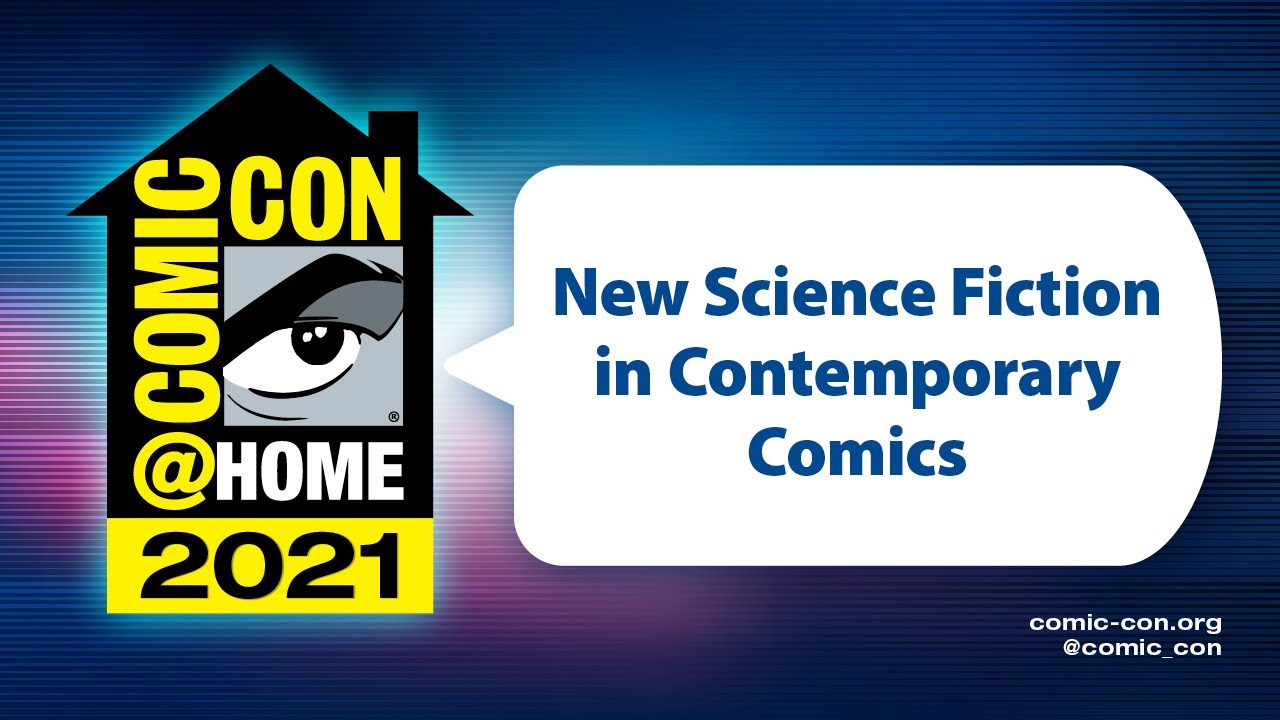 Three creators with upcoming science-fiction graphic novels coming up with Fantographics books, Manuele Fior (Celestia), Lane Milburn (Lure), Joshua Cotter (Nod Away), discuss their science fiction, and the influences that go into their stories. This discussion is moderated by Matthew Jackson.
Three creators with upcoming science-fiction graphic novels coming up with Fantographics books, Manuele Fior (Celestia), Lane Milburn (Lure), Joshua Cotter (Nod Away), discuss their science fiction, and the influences that go into their stories. This discussion is moderated by Matthew Jackson.
After a brief introduction of how each of these creators got their start in science-fiction, they talk a bit about their approach to their stories, and how they are interested in what the characters in their stories are experiencing.
They discuss the role that technology plays in their stories, and how the fantastic comes into play into their stories. They all seem to have an approach that isn’t quite hard sci-fi, but instead uses technology to help tell a particular story.
The creators discuss the influences that shaped their sci-fi visions, from Architecture and current space travel, to Kurt Vonnegut and google searches of what the future will look like.
They have an interesting conversation about how pre-planned their stories are, versus how much they make it up as they go. Also, they share some interesting insight into how they refine from a loose script to the finished page. Some of them plan, some just start drawing.
I didn’t know anything about these upcoming books, but after listening to these creators talk about them, I want to check these out. If you like to hear creators talk about their stories, and you like when those stories are sci-fi stories, this might be for you.
Junji Ito: Drawing the Lines of Terror
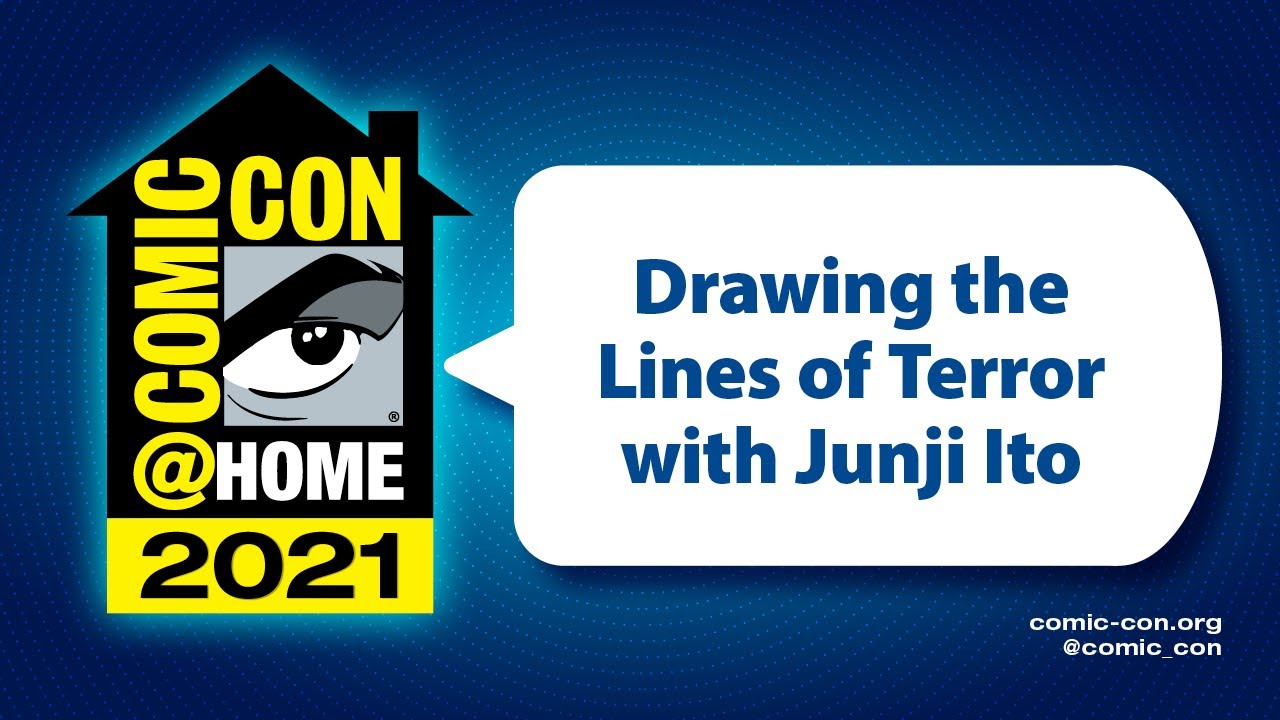 Urian Brown moderates this panel with Junji Ito. If you follow the 99th Episode podcast, you know that we are big Junji Ito fans. Sensor is the newest Junji Ito book out, and luckily, this panel isn’t really just a long press release for the book, but is instead a question and answer session
Urian Brown moderates this panel with Junji Ito. If you follow the 99th Episode podcast, you know that we are big Junji Ito fans. Sensor is the newest Junji Ito book out, and luckily, this panel isn’t really just a long press release for the book, but is instead a question and answer session
He is asked about the adaptions of his work into live action and anime, what it is like to scare people for a living, and the appeal of horror, among a number of other questions.
The moderator asks some manga specific questions, about some of his characters, such as the boy in white and the boy in black, and the ribless woman. Also, they talk about some of the inspiration for his new book, and how much some of the perspectives of some characters he believes.
Junji Ito also creates his own new superstition, and it is something that sounds like it could be straight out of his stories. Just stop at the twelfth hand stand.
The real treat of this panel is that there is a split screen, the interview in one screen, and a continuous video of Junji Ito creating an original drawing as the interview progresses. It is very cool to see that iconic Junji Ito style of character be created.
Will Eisner and the Metropolis
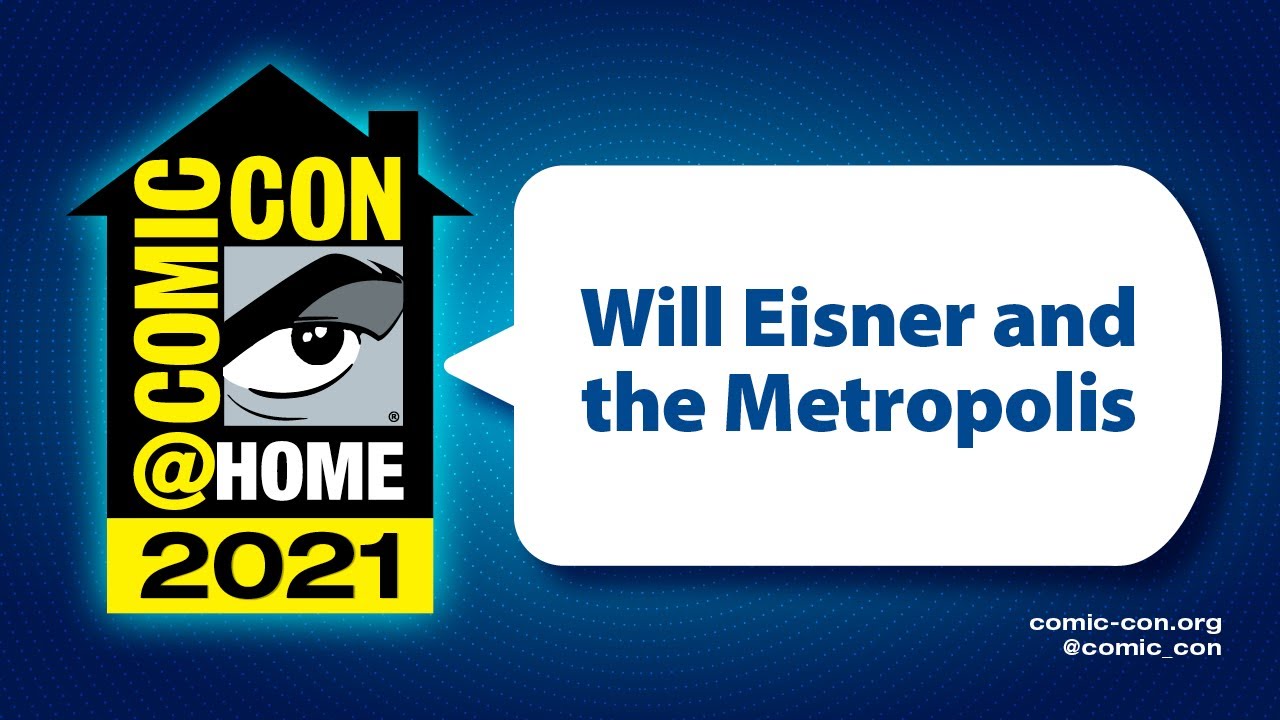 This panel is hosted by Danny Fingeroth, and talks all about Will Eisner and his relationship with New York City, and how how that city was reflected in his work. The panelists are Jerry Craft, David Hajdu, Paul Levitz, and Dean Haspiel.
This panel is hosted by Danny Fingeroth, and talks all about Will Eisner and his relationship with New York City, and how how that city was reflected in his work. The panelists are Jerry Craft, David Hajdu, Paul Levitz, and Dean Haspiel.
They start off the panel with some historical photos of New York in the depression era, which is when Will Eisner grew up in New York. I was interested to see the lower east side, and learn about how poor and packed it was.
The theme of this presentation is how New York is reflected in his stories, but this is a springboard for talking about Will Eisner and his work in general.
This panel is full of tidbits about Will Eisner’s life and work. Along the way, a slide show continuously shows panels and pages from The Spirit and other of his stories. He was such a talented illustrator, and this presentation highlights that.
I have something to admit, I haven’t read as much Will Eisner stories as I would like. A few glimpses through the pages they share show that this is a big oversight. I need to read more will Eisner. If you think you may need to read more Will Eisner, then check out this panel to get motivated!
Warning: You may end up buying some Will Eisner books afer watching this panel.
Like I did…
Jack Kirby’s Favorite Stories
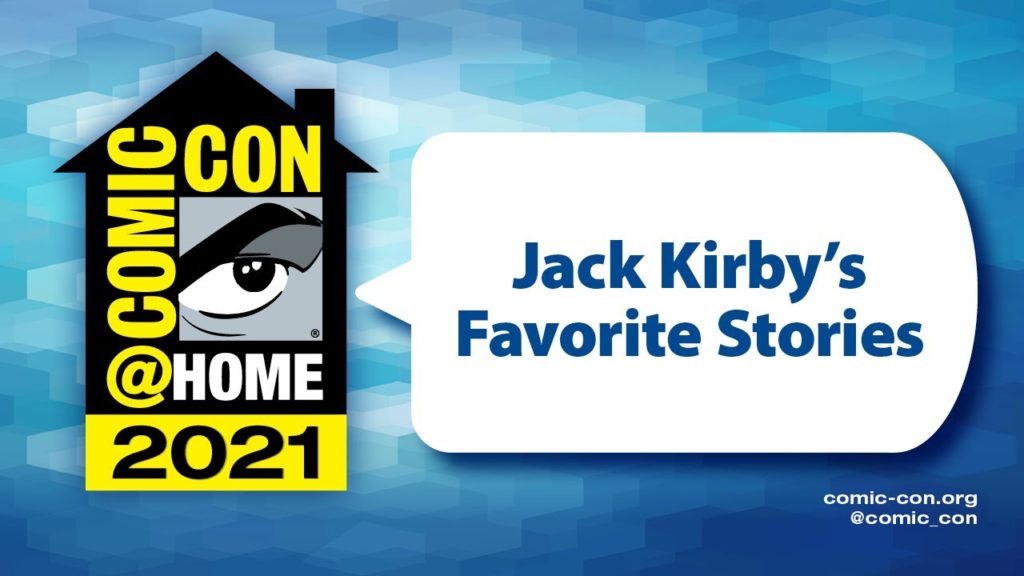 Rand Hoppe, in association with the Jack Kirby museum, present this panel discussing the stories created by Jack Kirby that Kirby himself liked the most. The panelists are Elana Levin (graphic policy podcast), Adam McGovern (comic writer), and Tom Kraft (president of the Jack Kirby Museum).
Rand Hoppe, in association with the Jack Kirby museum, present this panel discussing the stories created by Jack Kirby that Kirby himself liked the most. The panelists are Elana Levin (graphic policy podcast), Adam McGovern (comic writer), and Tom Kraft (president of the Jack Kirby Museum).
When Kirby was pushed to say what his favorite stories were, he mentions two:
- “The Pact” from New Gods
- “Mother Delilah” from Boys Ranch
Anyone that was read the Fourth World probably knows about “The Pact” from New Gods, but “Mother Delilah” was completely new to me. “Mother Delilah” is inspired by the Samson & Delilah story from the bible, but told in a western setting.
They discuss some of the more subversive elements of “Mother Delilah”, and how many things int he story are alluded to, rather than outright stated. The panelists also talk about the romance elements of other comics from the time, and how they make their way into this story.
As they flip through “The Pact”, they showcase some of the cool tidbits and inspired choices that Kirby made throughout this story. They also dig into the ways that the global conflicts of the time found their way into the pages of this story.
“The Pact” is an obvious standout from New Gods, so I enjoyed the deep dive through this issue.
Saturday Wrap Up
That’s a wrap on Saturday! This day was full of a lot of interesting panels. There is a lot there for comic fans to dive into. The discussion of “The Pact” in the Kirby panel and the Will Eisner panels were the highlights for me.
Check out all the rest of days of Comic-Con@Home 2021 coverage here on Overthinking Comics: